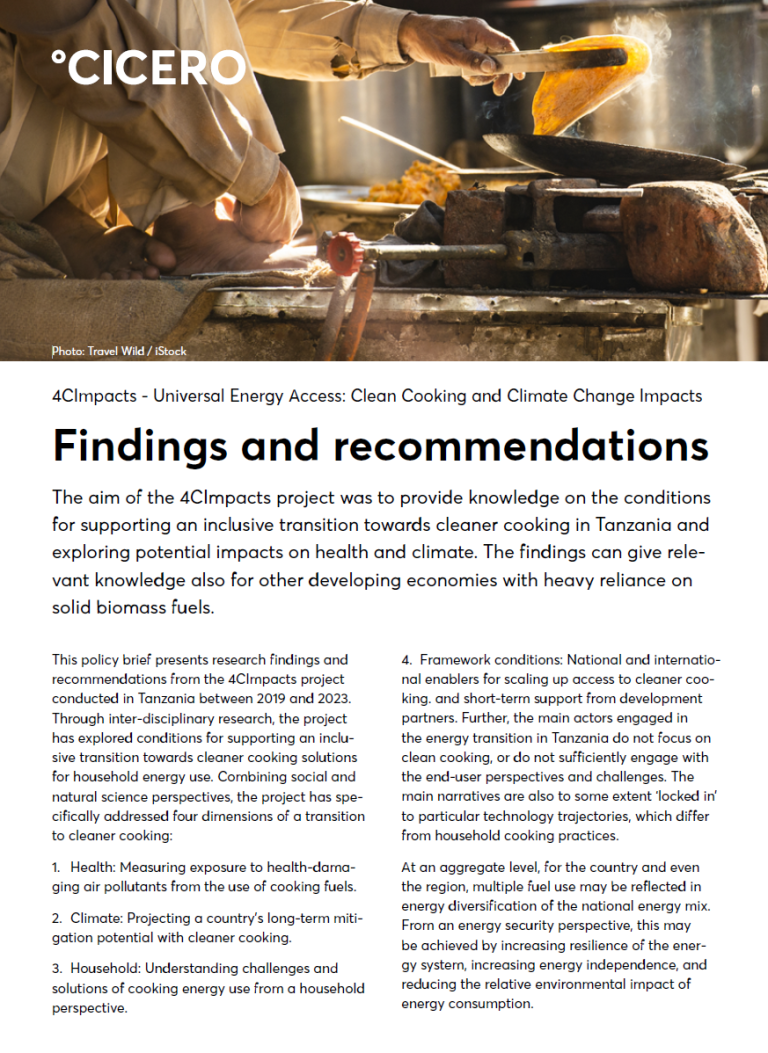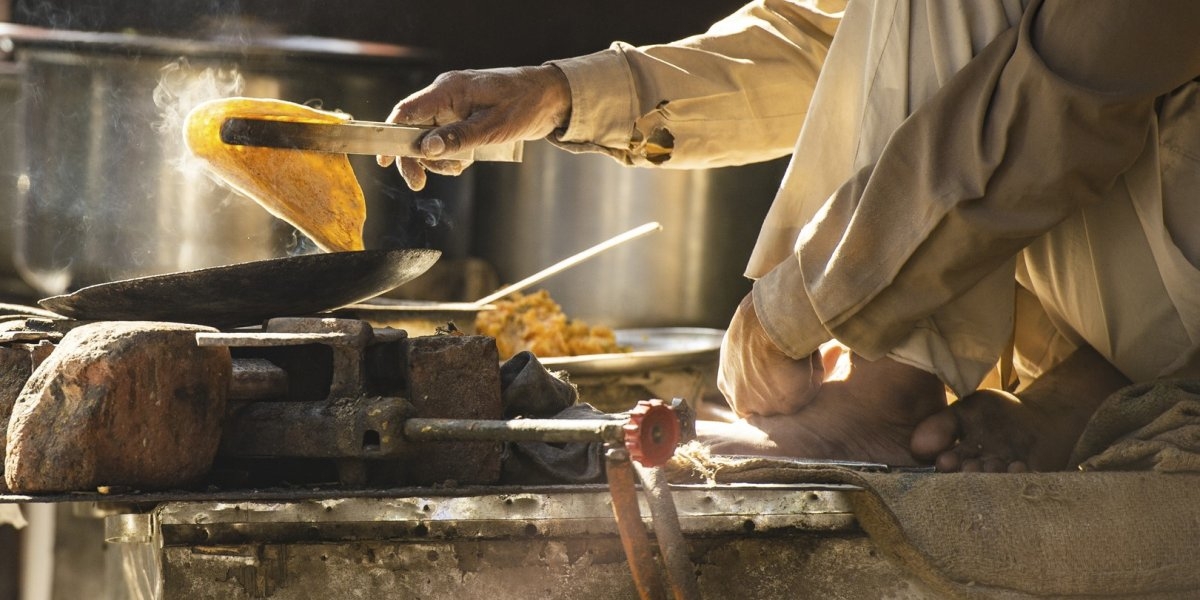Household Air Pollution (HAP) ranks as the ninth leading risk factor for premature mortality globally.
Clean Cooking and Climate Change Impacts
Household Air Pollution (HAP) ranks as the ninth leading risk factor for premature mortality globally. Through the CICERO-led project 4CImpacts we have worked on clean cooking and climate change impacts in Tanzania.
The transition to cleaner cooking
Tanzanian households face a substantial disease burden from HAP, constituting one of the largest environmental risk factors leading to excess deaths. In Tanzania, the World Health Organization (WHO) estimates that sixty deaths per 100,000 are attributable to HAP each year. Few studies have examined HAP levels in the context of Tanzanian kitchens.
The aim of the 4CImpacts project is to provide knowledge on the conditions for supporting an inclusive transition towards cleaner cooking in Tanzania and explore potential impacts on health and climate. The findings can also give relevant knowledge to other developing economies with heavy reliance on solid biomass fuels.
The 4CImpacts project conducted research between 2019 and 2023, and the findings and recommendations from the project are synthesized in a policy brief.
It was important to understand the challenges and solutions of cooking energy use from a household perspective, as well as the framework conditions and national and international enablers and barriers for a transition towards cleaner cooking in Tanzania.
Recommendations from the project are:
A cooking transition towards increased use of electricity from hydropower, LPG, and renewable options should be enabled.
National statistics (e.g. Household Budget Surveys) for monitoring domestic sector energy use should be enhanced to capture the practice of multiple fuel use accurately and enable more accurate estimates of emissions and climate benefits.
Procedures for national carbon monitoring should be revisited and updated, to increase precision in estimating emission and mitigation potential for different cooking fuels and patterns of demand.
You can download the policy brief here.
Project participants were CICERO, Center for International climate research, University of Dar es Salaam, Norwegian University of Life Sciences and University of Liverpool.

